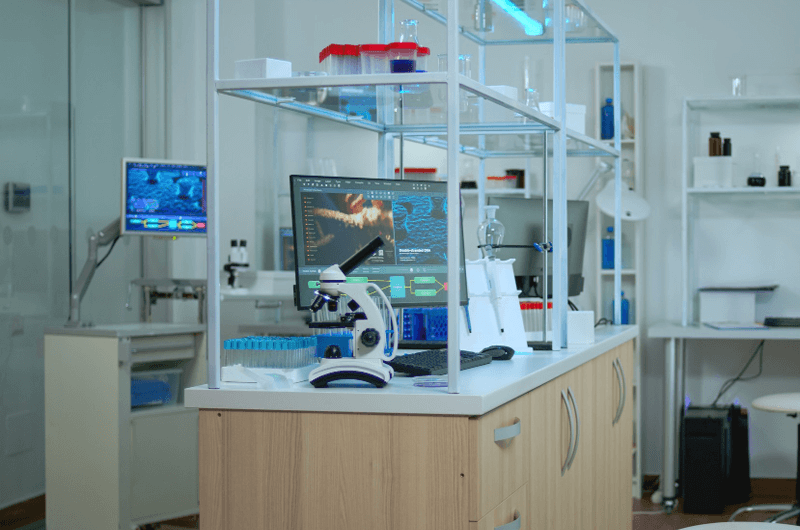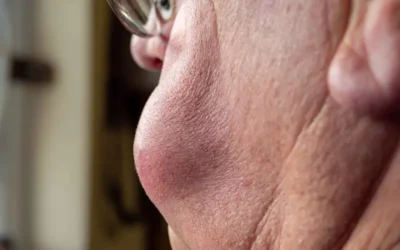Health insurance companies reimburse clinical laboratories and hospital laboratories for microbiological, serological, chemical, hematological, biophysical, radiobioassay, cytological, immunohematological, immunological, pathological, or other examinations that provide information for evaluating a medical condition or for the diagnosis, prevention, or treatment of any disease. Laboratory panels or chemistry panels are groups of tests that are ordered together for a specified member on a specified day. Experienced coders in medical coding companies are well-versed about the billing guidelines and codes for laboratory panel procedures as well as individual component procedures.
Common Chemistry Panels
- Basic Metabolic Panel (BMP) – tests that measure blood sugar (glucose) levels, electrolyte and fluid balance, and provide information about kidney function, respiratory function and liver function.
- Comprehensive Metabolic Panel (CMP) – provides the same information as the BMP as well as the status of the liver and key blood proteins.
- Electrolyte Panel – for detecting a problem with the body’s fluid and electrolyte balance.
- Lipid Profile – to assess the risk of developing cardiovascular disease.
- Hepatic Function Panel or Liver Panel – to screen for, detect, evaluate, and monitor acute and chronic liver inflammation (hepatitis), liver disease and/or damage.
- Renal Panel or Kidney Function Panel – includes tests to evaluate kidney function, such as albumin, creatinine, BUN, eGFR.
- Thyroid Function Panel – to assess thyroid gland function and help diagnose thyroid disorders.
Reporting Clinical Laboratory Panels – Points to Note
According to CPT, “…panels were developed for coding purposes only and should not be interpreted as clinical parameters. The test are listed with each panel identify the defined components of the panel. These panel components are not intended to limit the performance of other test. If one performs tests in addition to those specifically indicated for a particular panel, those tests should be reported separately in addition to the panel code”.
- Lab panel tests are the group of tests designated as a panel by the latest CPT version of the American Medical Association (AMA).
- Providers may bill either a panel code or an individual code.
- Each panel code comprises multiple tests.
- The panel code should be reported when all individual components in the panel have been performed.
- The code or codes to describe the individual tests performed should be reported if any test defined as part of the panel is not performed.
- Two or more panel codes that include any of the same constituent tests performed from the same patient collection should not be reported.
- If a group of tests overlaps two or more panels, the panel that incorporates the greater number of tests to fulfill the code definition should be reported and the remaining tests should be reported using individual test codes.
- Each test billed under the panel must be reasonable and necessary.
Reimbursement would depend on the number of tests billed on the same day, by the same provider, for the same beneficiary.
Laboratories should document the verbal communication from physician or other qualified practitioner regarding the treating physician or practitioner intent for the test. The date the service was performed should be stated in the patient’s record. Labs should also maintain all patient medical records supporting test as reasonable and necessary.
2017 Laboratory Panel CPT Codes
Here are the CPT codes for laboratory panels and their components:
80047 Basic metabolic panel (Calcium, ionized). Components: Calcium, ionized (82330); Carbon dioxide (bicarbonate) (82374); Chloride (82435); Creatinine (82565); Glucose (82947); Potassium (84132); Sodium (84295), and Urea Nitrogen (BUN) (84520).
80048 Basic metabolic panel (Calcium total): This panel includes the following components: Calcium; total (82310), Carbon dioxide (82374), Chloride (82435), Creatinine (82565), Glucose (82947), Potassium (84132), Sodium (84295), and Urea nitrogen (BUN) (84520).
80050 General health panel: The components of this panel include the following: Comprehensive metabolic panel (80053); Thyroid stimulating hormone (TSH) (84443); Plus one of the following CBC or combination of CBC components: 85025 Blood count; complete (CBC) automated (Hgb, Hct, RBC, WBC and platelet count) and automated differential WBC count, 85027 + 85004 Blood count; complete (CBC) automated (Hgb, Hct, RBC, WBC and platelet count and Blood count; automated differential WBC count; 85027 + 85007 Blood count; complete (CBC) automated (Hgb, Hct, RBC, WBC and platelet count and Blood count; blood smear, microscopic examination with manual differential WBC count; 85027 + 85009: Blood count; complete (CBC) automated (Hgb, Hct, RBC, WBC and platelet count, and Blood count; manual differential WBC count, buffy coat.
80051 Electrolyte panel: This panel must include the following: Carbon dioxide (bicarbonate) (82374) Chloride (82435) Potassium (84132) Sodium (84295).
80053 Comprehensive metabolic panel: This panel must include the following: Albumin (82040) Bilirubin, total (82247) Calcium, total (82310) Carbon dioxide (bicarbonate) (82374) Chloride (82435) Creatinine (82565) Glucose (82947) Phosphatase, alkaline (84075) Potassium (84132) Protein, total (84155) Sodium (84295) Transferase, alanine amino (ALT) (SGPT) (84460) Transferase, aspartate amino (AST) (SGOT) (84450) Urea nitrogen (BUN) (84520).
80069 Renal function panel: This panel must include the following: Albumin (82040) Calcium, total (82310) Carbon dioxide (bicarbonate) (82374) Chloride (82435) Creatinine (82565) Glucose (82947) Phosphorus inorganic (phosphate) (84100) Potassium (84132) Sodium (84295) Urea nitrogen (BUN) (84520).
80074 Acute hepatitis panel: This panel must include the following: Hepatitis A antibody (HAAb), IgM antibody (86709) Hepatitis B core antibody (HBcAb), IgM antibody (86705) Hepatitis B surface antigen (HBsAg) (87340) Hepatitis C antibody (86803).
80076 Hepatic function panel: This panel must include the following: Albumin (82040) Bilirubin, total (82247) Bilirubin, direct (82248) Phosphatase, alkaline (84075) Protein, total (84155) Transferase, alanine amino (ALT) (SGPT) (84460) Transferase, aspartate amino (AST) (SGOT).
80081 Obstetric panel(includes HIV testing) Components: Hepatitis B surface antigen (HbsAg) (87340); HIV-1 antigen(s) with HIV-1 & HIV-2 antibodies, single result (87389) Antibody, rubella (86762); Syphilis test, non-treponemal antibody; qualitative (eg, VDRL, RPE, ART) (86592); Antibody screen, RBC, each serum technique (86850); Blood typing ABO (86900); Blood typing, Rh (D) (86901) Plus one of the following CBC or combination of CBC components: Blood count; complete (CBC) automated (Hgb, Hct, RBC, WBC and platelet count) and automated differential WBC count (85025); Blood count; complete (CBC) automated (Hgb, Hct, RBC, WBC and platelet count and Blood count; automated differential WBC count (85027 + 85004); Blood count; complete (CBC) automated (Hgb, Hct, RBC, WBC and platelet count and Blood count; blood smear, microscopic examination with manual differential WBC count (85027 + 85007); Blood count; complete (CBC) automated (Hgb, Hct, RBC, WBC and platelet count and Blood count; manual differential WBC count, buffy coat (85027 + 85009).
Laboratory Modifiers
90 Reference lab; used to indicate a lab test was sent to a referral (outside) lab
91 Repeat clinical diagnostic laboratory test; used to report laboratory tests performed more than once on the same date to obtain subsequent, multiple test results. This modifier is not to be used when test is repeated due to specimen mishandling, insufficient sampling or re-confirmation.
92 Alternative laboratory platform testing; When lab testing is performed using a kit or transportable instrument that wholly or in part consists of a single use, disposable analytical chamber, the service may be identified by adding modifier 92 to the usual laboratory procedure code.
26 Professional component; used with CMS identified codes with separate professional and technical components.
TC Technical component; used with CMS identified codes with separate professional and technical components.
QP Panel test Documentation on file showing laboratory test(s) was ordered individually or ordered as a CPT recognized panel other than automated profile codes 80002-80019, G0058, G0059, and G0060.
Medical billing and coding companies are up to date on the guidelines pertaining to reporting screening diagnosis codes as well as choosing the codes to bill lab tests. Moreover, they will contact insurance carriers and employer groups to get clear and concise information when billing and coding for screening blood tests. Their support can be invaluable to ensure proper reimbursement for laboratory panel procedures and individual component procedures.




